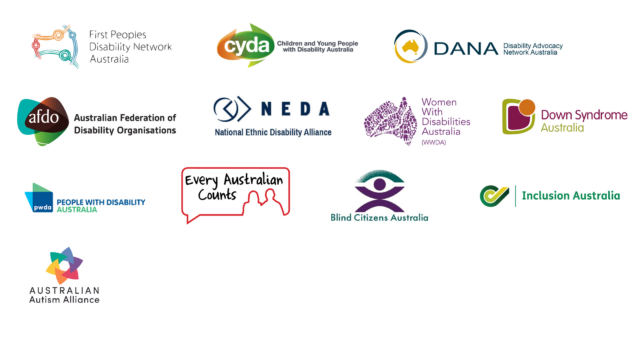21 June 2024
The recommendations in the report of the Senate Community Affairs Legislation Committee into the National Disability Insurance Scheme (NDIS) Amendment Bill 2024 are profoundly disappointing and disrespectful, say disability organisations.
Our organisations are deeply disappointed that the Senate Committee did not listen to the evidence and expertise of people with disability, our families, supporters and organisations, who made extensive, and detailed submissions about the flaws in the proposed legislation.
We have engaged with the Committee over three hearings and provided substantial evidence and lived experience. People with disability feel a loss of trust in the Parliamentary process that promises to listen to us, as we contemplate significant reform to the services and supports provided through the scheme.
The NDIS Amendment Bill needs significant amendment to make sure that people with disability don’t lose lifesaving disability support. We do not believe the Amendment Bill adequately reflects the recommendations of the NDIS Review.
We want the NDIS, and the promised reforms in the Review, to deliver for people with disability.
The legislation as it stands will restrict support to some parts of a person’s disability, instead of their whole person. People with disability told the Senate Committee about how we do not fit into neat little boxes that can be assessed separately. This is unfair, difficult to implement and will result in significant hardship and harm for people with disability.
Our organisations are particularly concerned about the proposed needs assessment, which if not amended, will leave people with disability with little of the support they need to live their lives. The needs assessment must be grounded in human rights, ethical considerations and capture a person’s support needs, life stage, life circumstances and life transitions. The needs assessment must not be a return to the scheme of ‘independent assessments’, either in part or full.
This assessment process must not replicate the traumatic, unfair process that exists now, or was proposed through independent assessments. For these reasons, we insist that the Bill is amended to include whole of person assessment as noted in our submissions.
Furthermore, repeated calls from First Nations people with disability to amend the legislation to appropriately represent them and their right to participation in cultural life, to enable a culturally responsive Scheme have been ignored. Failure to make any meaningful steps to ensure that First Nations people have access to tailored supports and culturally responsive diagnostic tools will result in the status quo of the NDIS remaining largely inaccessible for First Nations people with disability.
We also believe the legislation must be amended to ensure that co-design is a driver and central to NDIA reforms, to make sure changes are developed with our community. People with disability, our families, supporters and organisations are the experts on disability support, and that must be reflected in further amendments.
While the Committee made limited recommendations for further scrutiny into the increased powers for the NDIA, we do not believe they go far enough.
Our organisations have detailed a large number of amendments in our submissions that cover a wide range of essential improvements to this Bill.
We urge all Senators to adopt the changes proposed by our organisations in their considerations of the NDIS legislation next week.
Our organisations cannot support the passing of this NDIS Bill without further amendment.

